The Landscape of Substance Abuse in North Florida
Substance abuse in North Florida presents a complex and growing concern that affects families, individuals, and communities across both rural and urban settings. While cities like Jacksonville and Tallahassee have seen the effects of increased drug availability and evolving trends in substance use, smaller towns like Lake City face different, yet equally difficult, battles. The social, economic, and cultural dynamics of North Florida contribute to patterns of addiction that vary widely across the region.
Economic hardship, lack of access to mental health care, and limited transportation options all play a role in shaping the local addiction crisis. In rural parts of North Florida, residents often encounter barriers to treatment, including fewer available providers and longer travel distances to rehab facilities. This makes early intervention difficult and allows substance use issues to escalate unnoticed. At the same time, more populated areas see higher rates of overdose due to widespread availability of opioids, cocaine, and synthetic drugs.
Opioids and the Growing Fentanyl Threat
One of the most critical issues facing North Florida is the opioid crisis, particularly the infiltration of fentanyl into the drug supply. Fentanyl is a powerful synthetic opioid that has become increasingly common in recent years, contributing to a sharp rise in overdose deaths across the state. Many individuals who struggle with heroin or prescription painkillers are unknowingly exposed to fentanyl, which is often mixed into other substances due to its low cost and high potency. In counties across North Florida, fentanyl-related overdoses have become alarmingly frequent. Communities near Gainesville and Tallahassee are seeing rising numbers of emergency room visits and fatal incidents related to fentanyl-laced drugs. Families who have already endured the emotional strain of a loved one’s addiction now face the added threat of accidental death due to this dangerous substance.
Alcohol Dependency Across Age Groups
While opioids and illicit drugs dominate headlines, alcohol remains one of the most widely abused substances in North Florida. From young adults binge drinking at universities to middle-aged individuals coping with job loss or isolation, alcohol addiction quietly affects people across all walks of life.
In areas like Gainesville, the college culture often normalizes excessive drinking, leading to long-term patterns of alcohol misuse. In more rural communities, alcohol may be used as a form of self-medication or escapism, especially where mental health resources are limited. Unlike some other substances, alcohol use is legal and socially accepted, which can make it harder to identify when drinking habits cross the line into addiction.
Rehabilitation programs in North Florida must be equipped to treat alcohol use disorder with the same level of urgency and compassion as drug addiction. Detoxification is especially important for alcohol, as withdrawal can be life-threatening and requires medical oversight. Facilities like The Wave of North Florida in Lake City are designed to provide this critical level of care.
Methamphetamine and Rural Struggles
In North Florida’s rural communities, methamphetamine use continues to be a significant concern. Meth is relatively easy to manufacture and distribute, and it provides an intense, short-lived high that many users quickly become dependent on. Unlike opioids, there are fewer medical options for treating meth addiction, which means long-term behavioral therapy and structured rehab environments are essential.
Individuals caught in cycles of methamphetamine abuse often experience severe psychological effects, including paranoia, aggression, and hallucinations. The visible toll meth takes on a person’s appearance and health can lead to deep social stigma, further isolating individuals who may already feel hopeless or marginalized. Many users in rural areas don’t seek treatment simply because they don’t know where to turn or believe they can’t afford help.
This is where access to services in nearby cities like Lake City becomes essential. Even for residents in more remote parts of North Florida, traveling a short distance to receive care can offer a chance to break free from addiction in a safe and supportive environment.
Prescription Drugs and Hidden Dependency
Another widespread issue throughout North Florida is the misuse of prescription medications. Benzodiazepines, stimulants, and painkillers are often prescribed for legitimate health concerns but can lead to addiction when used improperly or over long periods. Because these medications come from pharmacies and doctors, some individuals underestimate their potential for harm.
Prescription drug misuse affects students under academic pressure, adults coping with chronic pain, and older individuals managing anxiety or sleep disorders. The problem is often compounded when patients use multiple medications at once or mix prescriptions with alcohol. Without proper education and monitoring, prescription drug dependency can become a hidden epidemic — one that cuts across demographics and rarely fits stereotypes of addiction.
Facilities like The Wave of North Florida provide a safe space for those struggling with prescription medication dependency. Through medical detox, counseling, and long-term support, patients can learn to manage the issues that led to misuse while building healthier coping strategies for the future.
Co-Occurring Mental Health Conditions
Mental health and substance abuse are often intertwined, and in North Florida, co-occurring disorders present a major treatment challenge. Anxiety, depression, trauma, and bipolar disorder frequently accompany addiction, creating a complicated clinical picture that requires integrated care. People may turn to substances to self-medicate emotional pain, only to find that the drugs worsen their mental health over time.
Unfortunately, many rehab facilities are not equipped to handle dual diagnosis patients, leading to incomplete treatment plans and higher relapse rates. That’s why it’s crucial to find a center that provides comprehensive behavioral healthcare alongside addiction treatment. The Wave of North Florida specializes in treating individuals with co-occurring disorders through a blend of therapy, medication management, and lifestyle support.
Access to this kind of care is life-changing. It helps people understand the underlying causes of their addiction and gives them the tools to manage both mental health and substance use more effectively.
Why Location Matters in Recovery
One of the often-overlooked factors in successful recovery is location. People recovering from addiction need an environment that feels safe, supportive, and removed from the triggers of daily life. In North Florida, individuals may choose to seek care away from home, particularly if they live in a town with limited resources or strong social pressures.
Lake City, for example, offers an opportunity to step away from familiar surroundings while remaining close enough for family involvement if desired. For residents of Gainesville, Jacksonville, Tallahassee, and surrounding areas, traveling a short distance to access high-quality care can offer the best of both worlds: privacy and convenience.
At The Wave of North Florida, patients are welcomed into a structured and compassionate setting designed to promote healing. Treatment plans are customized to meet the unique needs of each person, with a focus on long-term success and community reintegration.
Building a Stronger Support Network
Recovery doesn’t end when treatment does. After completing a rehab program, individuals need access to continued care, including outpatient therapy, peer support, and relapse prevention planning. North Florida has a growing network of support groups, recovery communities, and outpatient providers, but the quality and availability of these services vary by city.
This is why many people begin their recovery in a central facility like The Wave and then transition into ongoing care with referrals and case management. The goal is not just to stop using drugs or alcohol but to create a life where sobriety feels sustainable and rewarding. Strong support networks are key to this process, and North Florida’s recovery ecosystem continues to evolve to meet this need.
Taking the First Step Toward Healing
Facing addiction is never easy, and navigating the specific challenges of substance abuse in North Florida can feel overwhelming. But there is hope, and there are resources. Whether you’re in a city like Tallahassee or a small town on the outskirts of Lake City, support is within reach.
Understanding the substance use landscape in your area is the first step in finding the right help. The next step is reaching out. The Wave of North Florida offers comprehensive, personalized treatment options for individuals and families throughout the region. From detox to aftercare, every aspect of the recovery process is guided by compassion, professionalism, and the belief that lasting change is possible.



